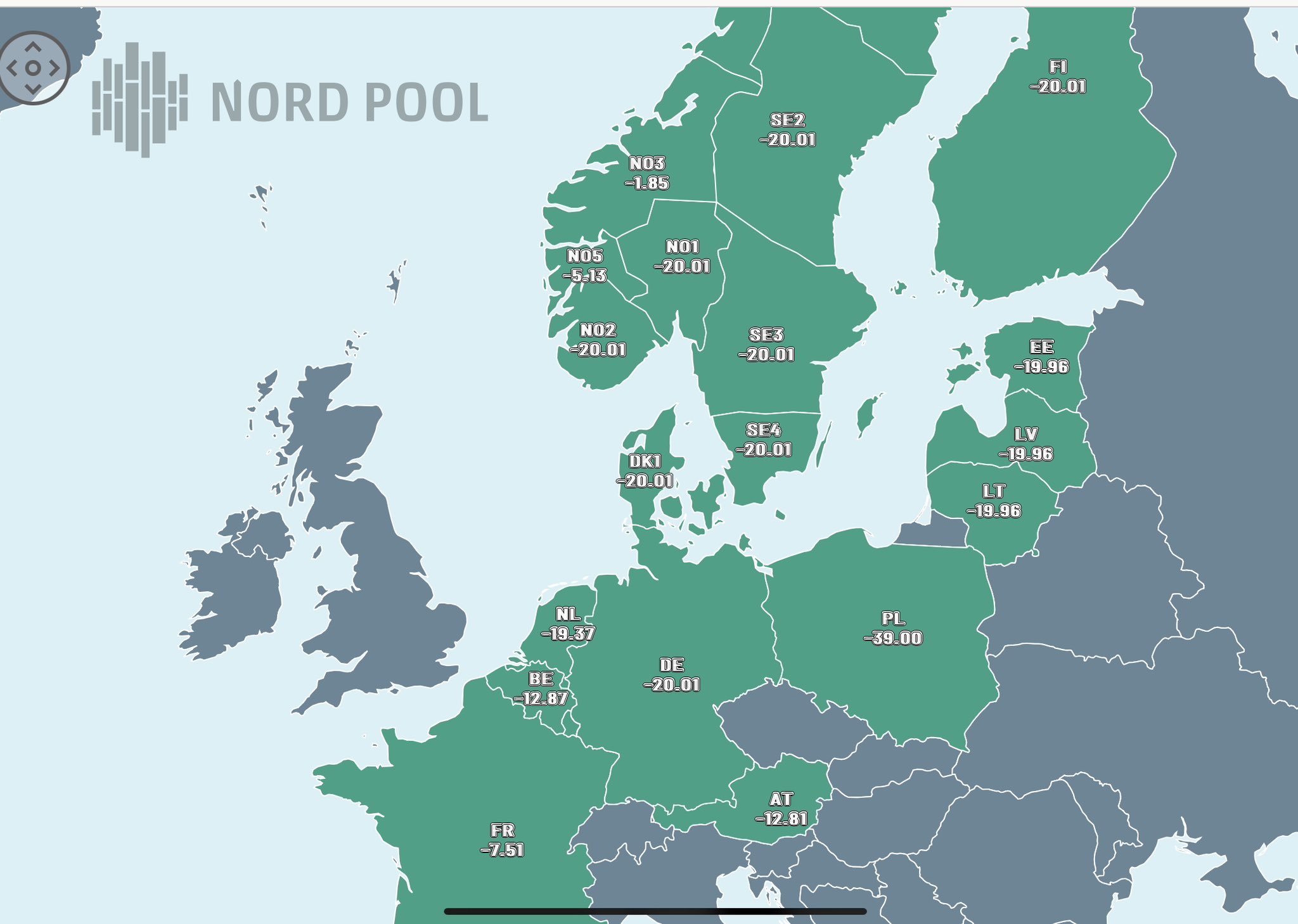The Unforeseen Challenges of Renewable Energy Surpluses in Europe
Unpredicted Surpluses Shake Up Energy Markets
This past Sunday marked an unprecedented occurrence in the European energy landscape. From Finland to Lithuania, and from Poland to France, wholesale power prices plunged into the negative territory, largely influenced by Germany’s overabundant renewable energy generation.
The Renewable Energy Spike
Over the weekend, Germany experienced extraordinary wind and solar power production, with renewable energy outputs potentially reaching 80 GW. This production level starkly contrasted with the nation’s peak demand, estimated at around 50 GW. The mismatch led to a reduction in wholesale electricity prices to zero or even negative figures for a significant portion of the day.
Export Limitations and Grid Challenges
Germany’s 27 GW interconnector capacity theoretically allows for the export of excessive power. However, when neighboring countries also experience high renewable outputs, the capacity becomes insufficient. This mutual abundance triggered massive curtailment because the grid simply couldn’t absorb the excess power.
With wind farms generating more electricity than ever, grid operators are faced with the herculean task of balancing supply and demand. Unfortunately, grid infrastructure has not evolved at the same rapid pace as renewable energy technology, thereby exacerbating the imbalance.
The Role of Rooftop Solar and Smaller Energy Producers
The rapid expansion of rooftop solar installations presents another layer of complexity. In Germany alone, an additional 10 GW of rooftop solar capacity is expected within the next year. The decentralized nature of these installations, which grid operators cannot easily control or switch off, causes unpredictable fluctuations in power supply.
At the same time, many behind-the-meter batteries and electric vehicles (EVs) connected to the grid further contribute to the instability. Like rooftop solar panels, these elements are not controllable by grid operators, compounding the challenge of maintaining a balanced and reliable electricity supply.
Implications for Future Renewable Energy Projects
This precarious situation leaves serious implications for future renewable energy initiatives. Financial risks are high when the possibility of negative pricing looms, discouraging new investments. The energy sector must grapple with this dilemma: how to sustain investment in renewables while averting potential financial pitfalls linked to overproduction.
The Need for Regulatory Reform
Addressing this multifaceted issue requires significant regulatory overhauls. Governments and energy regulatory bodies need to devise strategies that integrate modern solutions for grid stability, perhaps through incentivizing demand-response measures or developing smarter grid infrastructure capable of dynamic adjustments.
Moreover, the integration of advanced energy storage solutions and intelligent grid-management systems will play a crucial role in mitigating overproduction risks. It is essential to create an environment that can handle the complexities and technical demands of a renewable-dominated energy market.
Conclusion: A Renewable Future with Stability
Germany’s experience this past Sunday underscores the volatile nature of an ever-expanding renewable energy sector. While the surge in sustainable power generation marks progress towards environmental goals, it also highlights the urgent need for comprehensive grid modernization and regulatory reforms.
The ability to navigate these challenges will determine whether Europe can maintain grid stability while continuing to harness the benefits of renewable energy on a large scale. The path forward is fraught with uncertainties, but with the right policies and technologies, a stable and sustainable future is within reach.
